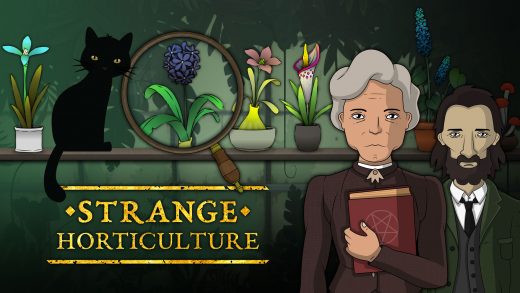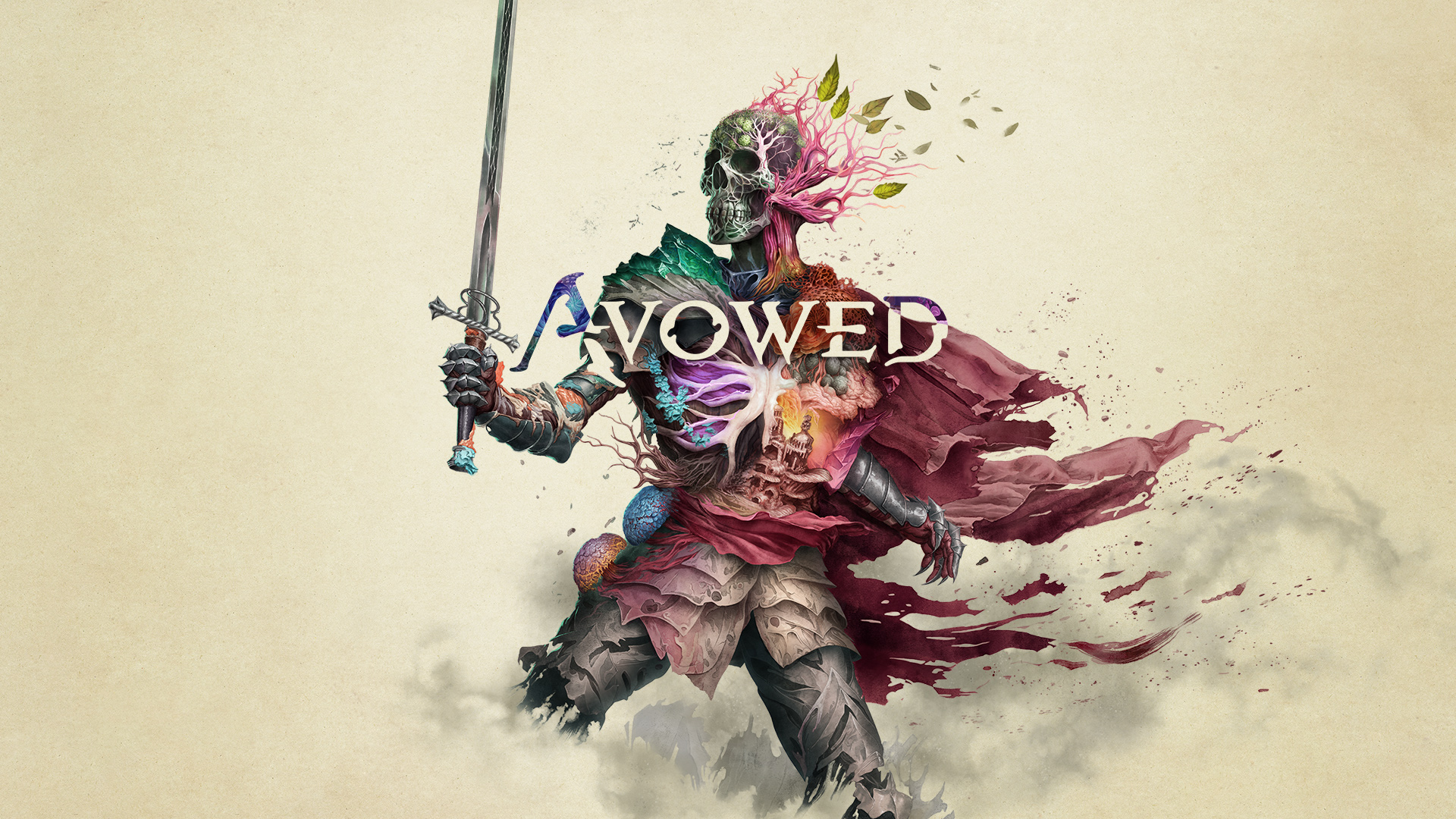
Yesterday, Avowed appeared at the Xbox Games Showcase 2024 with a brand new trailer, revealing more of the game’s captivating story and giving us further insight into one of your four companions, Giatta. If you came out of that wanting to see more, we have a treat for you; on a special episode of the Official Xbox Podcast, Avowed Game Director Carrie Patel joined hosts Malik Prince and Tina Amini to dive deeper into the gameplay players can expect from the upcoming fantasy action RPG.
We got to see a lot more of the game – which arrives later this year for Xbox Series X|S, Windows PC, and cloud (and coming day one to Game Pass) – revealing more of the Emerald Stair region, showing us two possible approaches to the same quest, the game’s Party Camp, upgrade systems, an optional 3rd-person viewpoint, and more. You can watch the full episode below, or read on for all the key new details.
Patel started by introducing the Emerald Stair region – which you’ll arrive into fairly early into the game – and showed off the region at night. Avowed’s dynamic day-night cycle will change the atmosphere of each of the game’s fantastical biomes significantly, and Emerald Stair after sunset is particularly gorgeous – the nearby town of Fior is home to an enclave of Animancers, who study the science of souls including the Dreamscourge plague sweeping the game’s Living Lands setting (find out more about that here), and their arcane equipment lights up the sky with a deep purple glow.
Speaking of Animancers, the gameplay we saw showed the player on a quest to help them – but before we got there, we met one of the game’s soon-to-be companions, Yatzli. Patel describes Yatzli as “a little lightning ball with a lot of personality,” pointing out that she can get “a little risqué,” and we see very quickly that her dialogue immediately takes a flirtatious tone. This also shows off Obsidian’s trademark of engaging dialogue and choices – certain attributes or character backgrounds you choose will unlock new options, which can add more personality, or even change the outcomes of your conversations.
Yatzli sends us off to collect a Godless Vase – an artifact of the people she studies – and the player is plunged into combat. Even using a mixture of spells, ranged attacks, and melee, we saw the player struggling to take down even smaller enemies at this point – and it’s here that we saw the game’s Party Camp feature.
“It’s both your narrative hub and also your upgrade hub,” said Patel. “That’s where you’ll get to know your companions better, you can get to know their backstories and get to know them better as individuals – you can also hear them getting to know one another through their banters at camp, which is always super-fun to eavesdrop on.”
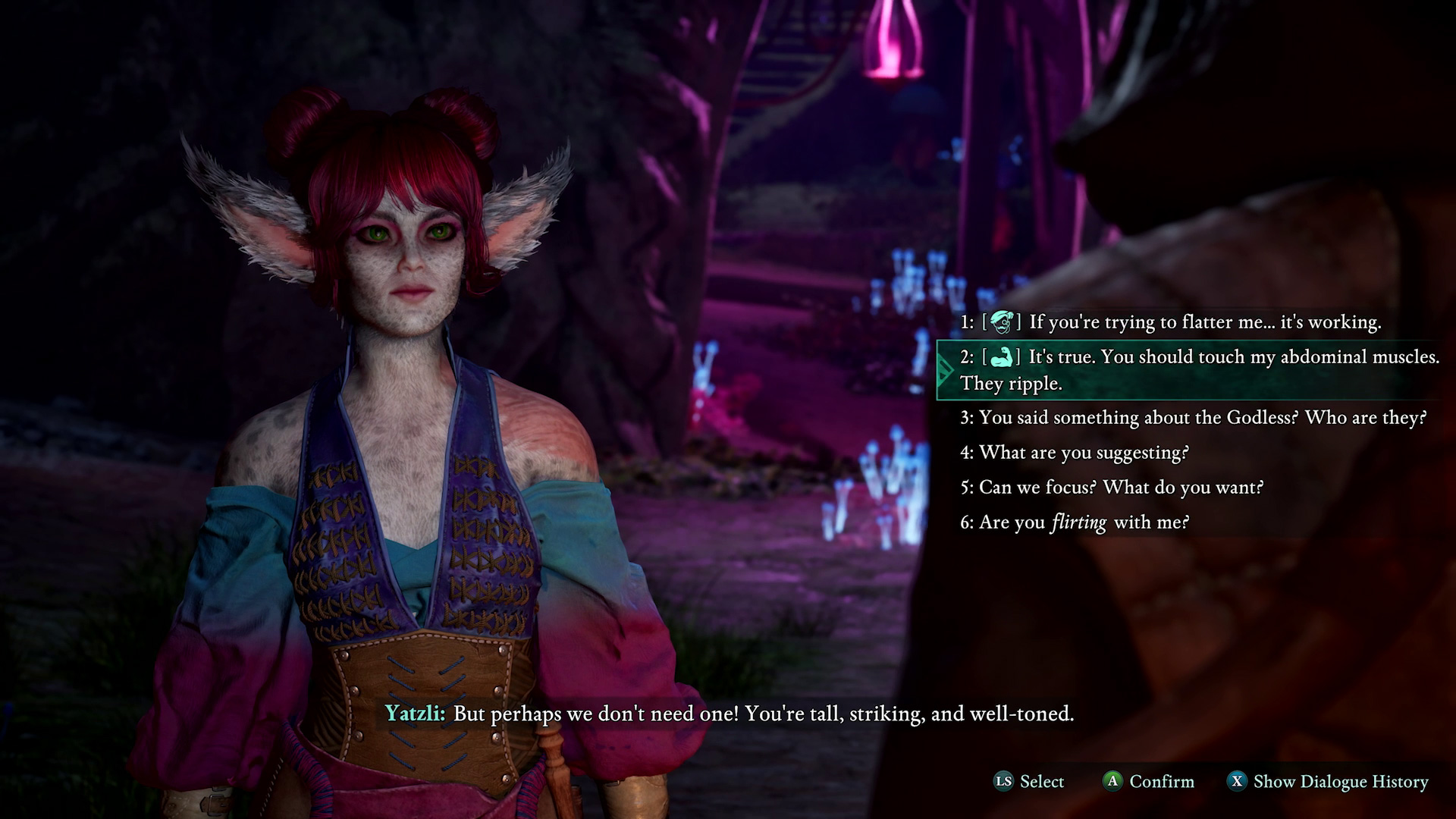
“One thing we really wanted to create with Party Camp,” continued Patel, “was the sense that you’re adventuring and exploring together through this big wilderness, all of these different landscapes, and Party Camp is this quiet space where you can all huddle together, share a moment of respite, and the pace and the tone of everything is a lot slower and quieter.” As you travel through the game, you’ll hear your companions discuss their lives, share perspectives on what you’ve done together, and perhaps even come into conflict about the decisions that need to be made.
But it also serves an all-important mechanical function: “It’s also where we can upgrade our gear. So we’ve got our Party Stash where we can stow a lot of extra equipment, we’ve got our upgrade screens […] we’re taking some of our older gear that we’ve picked up in the previous region, and we’re going to upgrade it so that we’re better equipped to fight the enemies here.”
With new upgrades in place, the player took down enemies far more capably – helped along by Obsidian’s choice to reflect how effective your attacks are visually and audibly: “We want to make sure that players are getting clear feedback as to when their gear is effective and when, maybe, they need to go back to camp. It looks, it feels, it sounds different when you’re playing with appropriately leveled gear.”
We want to make sure that players are getting clear feedback as to when their gear is effective and when, maybe, they need to go back to camp.
Carrie Patel
We also got a good look at the game’s upgrade system for skills and abilities. “You can upgrade your skills and abilities anywhere as you level up throughout the course of the game,” said Patel. “On certain level-up milestones we’ll get to upgrade our attributes […] and on every level-up milestone we’ll get to pick a new ability.”
This quickly bears fruit, as we see the Fan of Flames skill unlocked and used to reduce a previously-blocked path to ashes. But it wasn’t the only option:
“We wanted to try to, as much as possible, give the different abilities that players can pick up solutions in combat, but also solutions in exploration,” explained Patel. “So there’s almost always more than one way through a particular barrier. You’ll have weapons, your own abilities, spells, weapon enchantments, sometimes even your companions who can use their environmental abilities to help you get through barriers.”
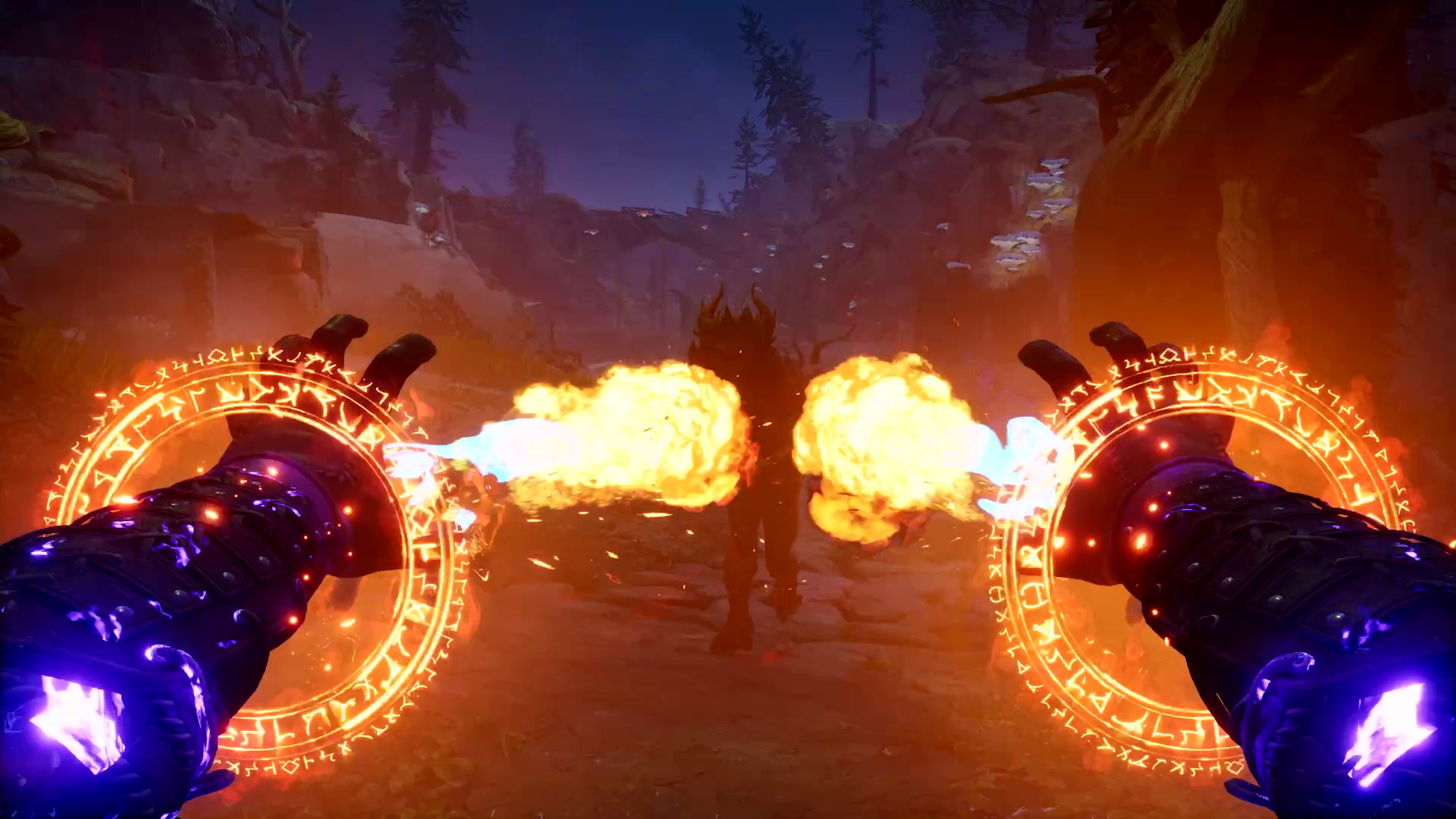
That openness to problem-solving is never clearer than in the other quest we saw in the demo. Having recovered the vase for Yatzli – a key part in your journey to unlocking her as a permanent companion – we saw the player set off to recover an Adragan Heart for the Animancers. This mystical object is being held by the Delemgan, a territorial species who don’t take kindly to adventurers passing through their land.
Initially, we saw the player take a heads-on approach, battling through multiple Delemgan and using every combat ability at their disposal to reach their Queen – who immediately attacks the player for killing so many of her followers. This player would have to finish her off in a boss fight to claim the heart. But here’s where we saw some of Obsidian’s trademark of player choice.
The demo was reloaded, and we saw the player utilizing in-game currency to fully respec their character – adding multiple Ranger abilities that allow them to take a stealthy approach. Using the Shadowing Beyond skill – which renders them invisible for as long as their Essence (the game’s mana) intact, and without engaging any enemies – they took multiple passages to reach the Delemgan Queen without any combat. In doing so, they found her in a far better mood, gifting them the Heart and letting them go in peace.
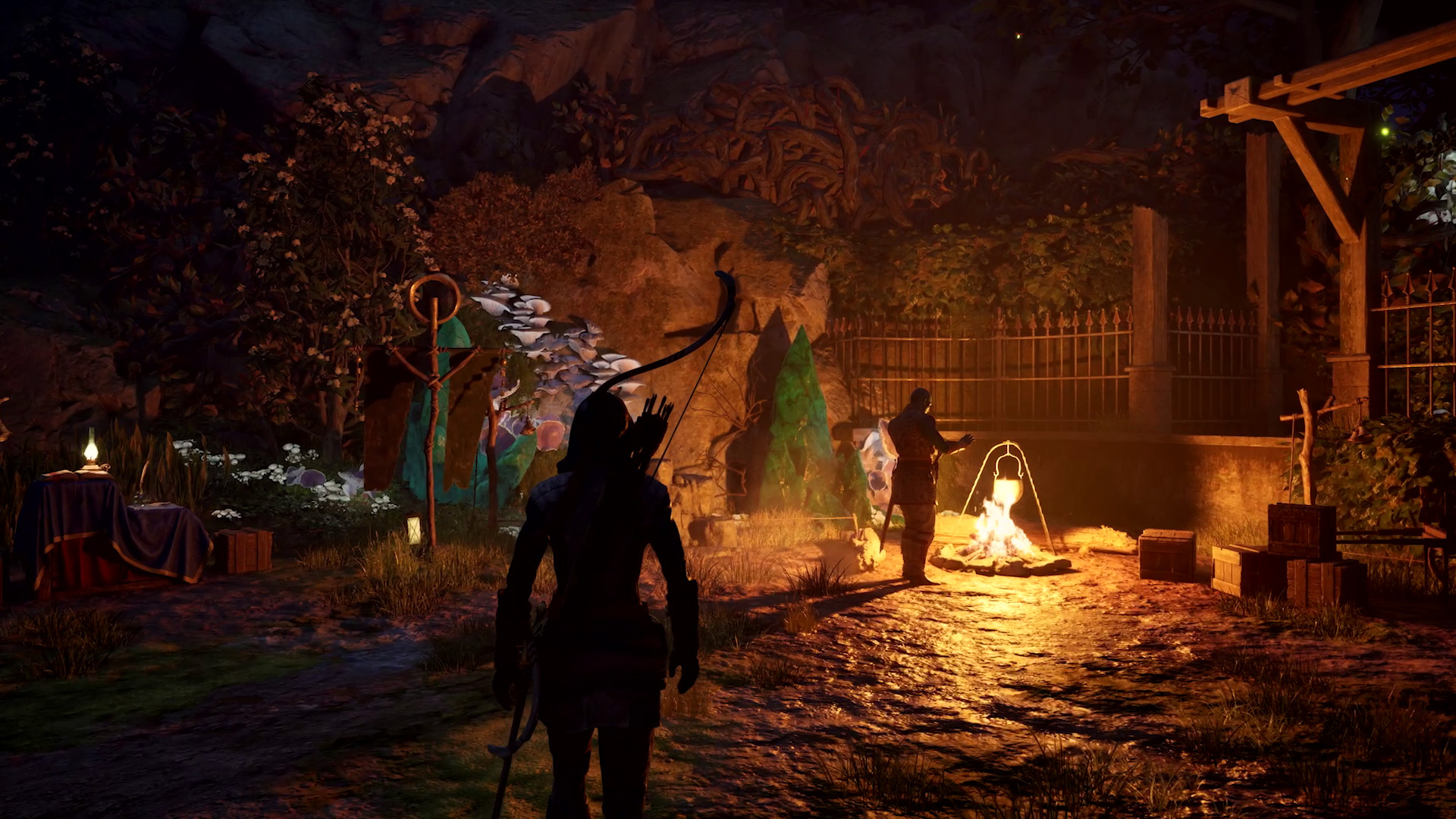
It’s emblematic of how open Avowed will be to interpretation, and how your choices will allow you to take different paths to get what you need. Skills in particular, are totally open to how you choose to use them:
“You can really mix and match freely between them,” said Patel. “If you want to be all-wizard, you can build entirely throughout that skill tree; if you want to mix and match – make a battlemage, or make someone who can be a little stealthy in certain moments and a little more aggressive in others – you have a lot of freedom to do that.”
If you want to be all-wizard, you can build entirely throughout that skill tree; if you want to mix and match… you have a lot of freedom to do that.”
That openness extends to your cosmetic choices too. We got a glimpse at the game’s optional 3rd person mode – players can choose to play in 1st or 3rd person perspectives – and your choices will be displayed prominently on them too. Your character is a godlike – someone who has been touched by one of the gods that reside in the world of Eora – and it shows, quite literally.
Part of creating your character will be in choosing how your godlike status has manifested. The player-character in the demo has a lichen-like growth across their face or head, but this is part of the character creation process. “With Avowed you can choose exactly what that manifestation looks like,” said Patel. “You will have some that are a lot bigger and more dramatic, and you’ll also have some that are a lot subtler. But either way you have a connection to one of the gods.”
Characters in the world will react to your appearance too: “Some people think that’s very cool, some people think it’s very spooky. Different cultures and individuals have different ways of relating to godlikes, so you’ll get a number of reactions.”
But the key mystery is that, unlike most godlikes, you don’t know which god has put their mark on you. That’s a story point that Patel wouldn’t touch on further – we’ll just have to find out together when Avowed arrives this year.


